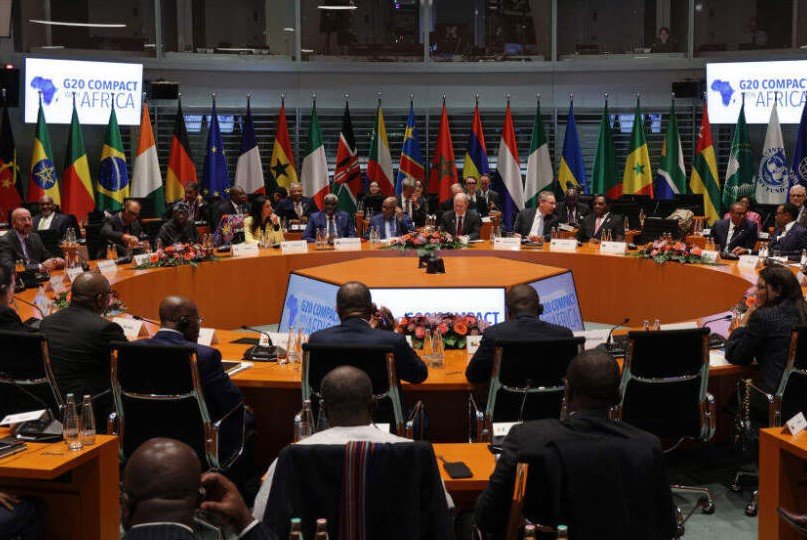Sudan’s de facto leader General Abdel Fattah al-Burhan met Egyptian President Abdel Fattah al-Sisi in Cairo on October 15, 2025, to discuss ending Sudan’s ongoing war and protecting shared Nile River interests. The talks at Ittihadiya Palace highlighted strong historical bonds, joint efforts for peace, and firm opposition to Ethiopia’s actions on the Grand Ethiopian Renaissance Dam.
Key Points from the Cairo Meeting
The leaders focused on boosting ties between Sudan and Egypt amid regional challenges. They stressed the need for deeper cooperation in politics, economy, and security to benefit both nations.
Burhan arrived with top officials, including Sudan’s foreign minister and intelligence chief. This showed the visit’s importance for high-level coordination.
Sisi welcomed Burhan warmly, praising the deep brotherly relations. He pledged Egypt’s full backing for Sudan’s unity and stability.
The pair reviewed global pushes to stop Sudan’s conflict, now in its third year. They backed the Quartet group, which includes Saudi Arabia, the United States, the United Kingdom, and the African Union.

Efforts to Resolve Sudan’s Conflict
Sudan’s war has caused massive suffering since it started in April 2023, displacing over 10 million people and killing thousands. The Cairo talks aimed at finding paths to peace.
Both leaders hoped the Quartet’s meeting in Washington later in October 2025 would lead to real progress. This could include ceasefires and aid delivery.
Egypt has provided humanitarian support, hosting over 500,000 Sudanese refugees. Sisi repeated Egypt’s commitment to mediation for a lasting solution.
They agreed dialogue is the best way forward. This avoids more violence and helps rebuild Sudan’s economy, hit hard by the fighting.
Recent data shows Sudan’s GDP dropped by 12 percent in 2024 due to the war. Ending it could unlock international aid and investment.
Nile Water Security Takes Center Stage
A major topic was the Nile River, vital for both countries’ survival. Egypt relies on it for 97 percent of its water, while Sudan uses it for farming and power.
The leaders rejected any one-sided moves on the Blue Nile, pointing to Ethiopia’s Grand Ethiopian Renaissance Dam. Built over a decade, the dam was inaugurated in September 2025.
This has raised fears of reduced water flow downstream. Egypt and Sudan want binding rules to ensure fair sharing.
In the talks, they vowed to coordinate on water rights under international law. This builds on past agreements like the 1959 Nile Waters pact.
Tensions have grown since Ethiopia started filling the dam in 2020. Recent floods in Sudan highlight the risks of poor management.
- Key concerns include potential droughts affecting Egypt’s Aswan High Dam.
- Reduced Nile flow could cut Sudan’s crop yields by up to 20 percent.
- Ethiopia claims the dam will generate over 5,000 megawatts of electricity for development.
Historical Context and Regional Impact
Egypt and Sudan have shared the Nile for centuries, with ancient ties dating back to pharaohs. Modern disputes trace to colonial-era deals that favored downstream nations.
The Grand Ethiopian Renaissance Dam changes this balance. Ethiopia, source of 85 percent of the Nile’s water, seeks more control.
Past talks in 2021 and 2023 failed to reach a deal. The United Nations has urged fair negotiations among the three countries.
Recent events, like Ethiopia’s dam opening, have sparked protests in Cairo. Experts warn of possible conflicts if issues persist.
| Aspect | Egypt’s View | Sudan’s View | Ethiopia’s View |
|---|---|---|---|
| Water Share | Needs guaranteed flow for population | Wants protection for farms and cities | Sees dam as right to development |
| Dam Impact | Fears shortages in dry seasons | Worries about floods and sediment | Promises no harm to neighbors |
| Legal Stance | Demands binding agreement | Supports joint management | Rejects old colonial pacts |
This table shows the core positions, based on public statements.
Looking Ahead to Peace and Cooperation
The Cairo meeting signals hope for Sudan amid chaos. With over 2 million facing famine, quick action is crucial.
Burhan and Sisi plan more joint work on borders and trade. This could stabilize the region.
Experts say resolving the Nile dispute needs trust-building. Inclusive talks with Ethiopia might ease tensions.
As 2025 progresses, watch for the Washington meeting’s results. It could shape Sudan’s future and Nile policies.
What do you think about these talks? Share your views in the comments and spread the word to keep the conversation going.
